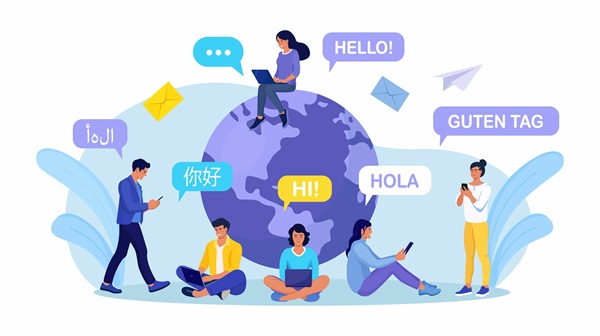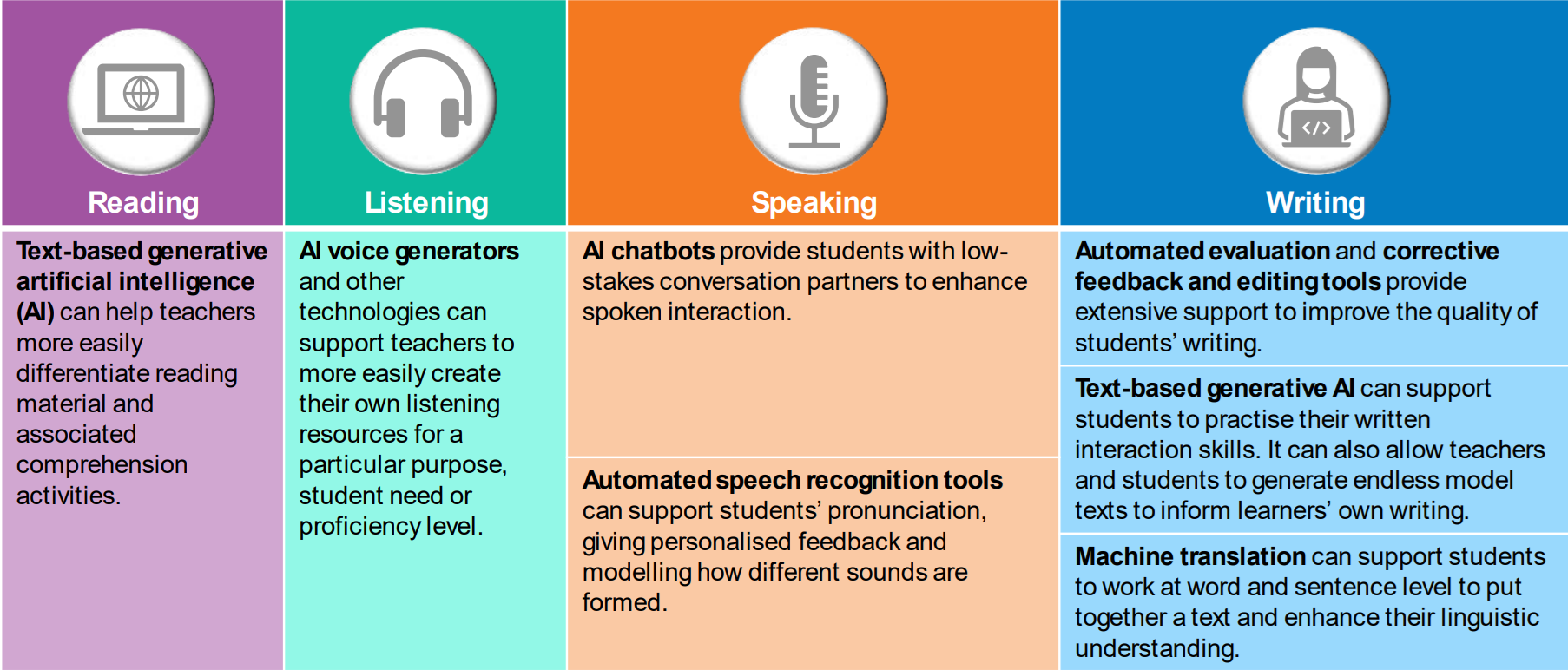Artificial intelligence as an asset to language learning in Europe

The European Union is famous for its linguistic diversity, with 24 official languages and numerous regional and minority languages across its member states. Language learning is an important part of European education systems, contributing to shared European identity, cultural understanding and cooperation.
In recent years, artificial intelligence (AI)-assisted language learning has emerged as a powerful tool to enhance language learning, offering new and effective pathways to support multilingual education. These pathways incorporate AI technologies including natural language processing (NLP) and machine learning models.
OECD -https://doi.org/10.1787/a3fcacd5-en
One of the most significant benefits AI brings to language learning is personalisation. Different learners have different learning methods and needs, and AI technologies can customise their learning to suit their needs. These technologies can also be an asset in classroom learning. Language learning can be difficult, and involves frequent repetition. To engage students in an entertaining way, teachers can incorporate AI tools into their pedagogy to gamify learning, using interactive apps and games.
Techers can tailor lessons to individual needs with real-time feedback, using data algorithms and analytics to adapt to a pupil’s own progress and learning style, helping ensure that pupils focus on areas that need improvement as well as reinforce areas where they're stronger. This feedback can be not only written but also verbal - speech recognition technology also allows learners to practice pronunciation and receive correction. This immediate feedback helps develop speaking and listening skills at the learner’s own proficiency level.
The language learning needs of remote and isolated communities within the EU can also be opened up by AI-driven mobile apps, meaning that learners can access quality language education regardless of where they live or their socio-economic status.
However, along with these benefits there exist both limitations and challenges, and if used, these technologies must add real pedagogical value. The European Commission has issued ethical guidelines on the use of AI and data in teaching and learning as part of the Digital Education Action Plan, including for language learning.
Further reading
Additional information
-
Education type:School Education
-
Target audience:TeacherStudent TeacherHead Teacher / PrincipalTeacher EducatorResearcher
-
Target audience ISCED:Primary education (ISCED 1)Lower secondary education (ISCED 2)Upper secondary education (ISCED 3)

